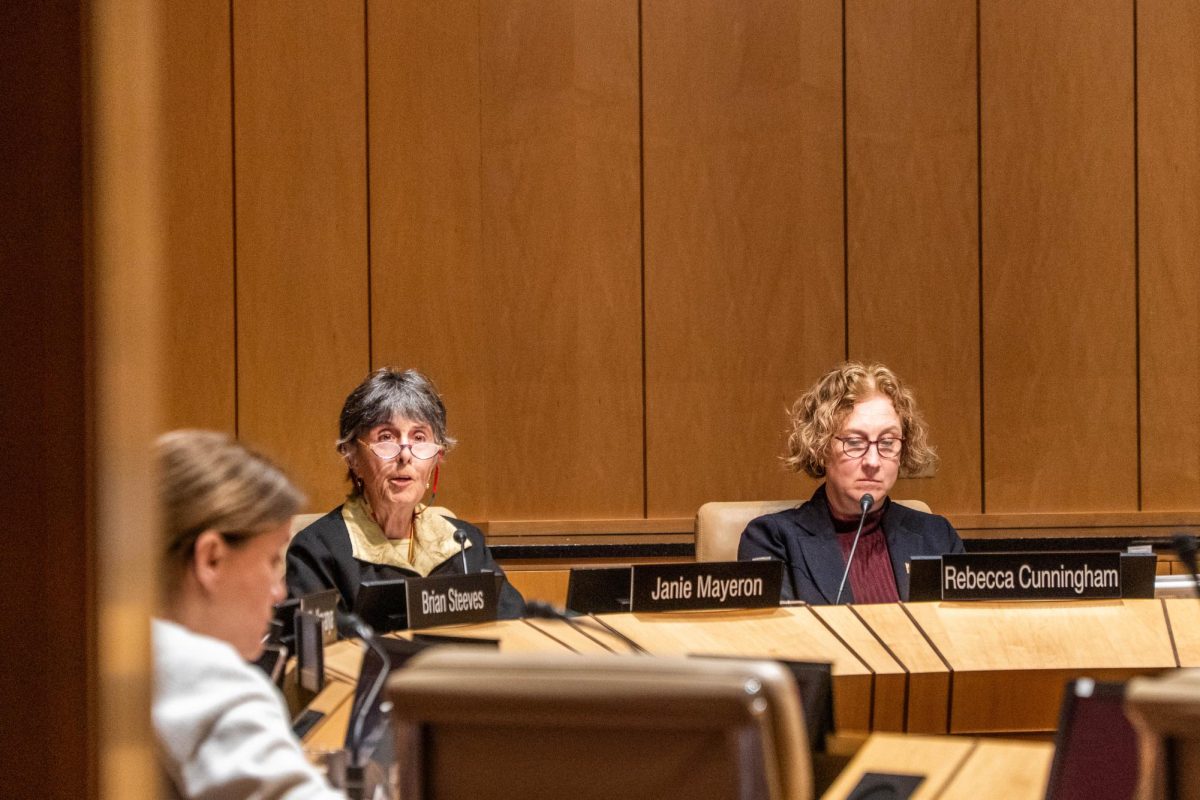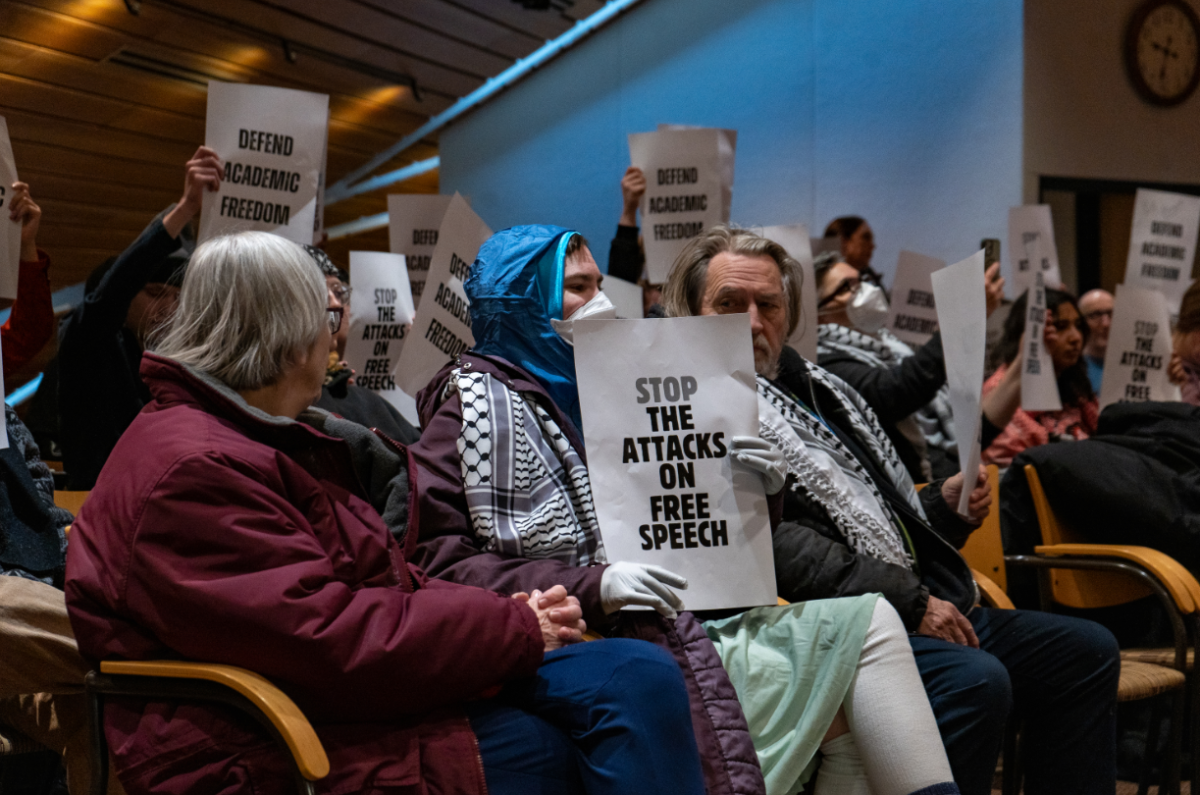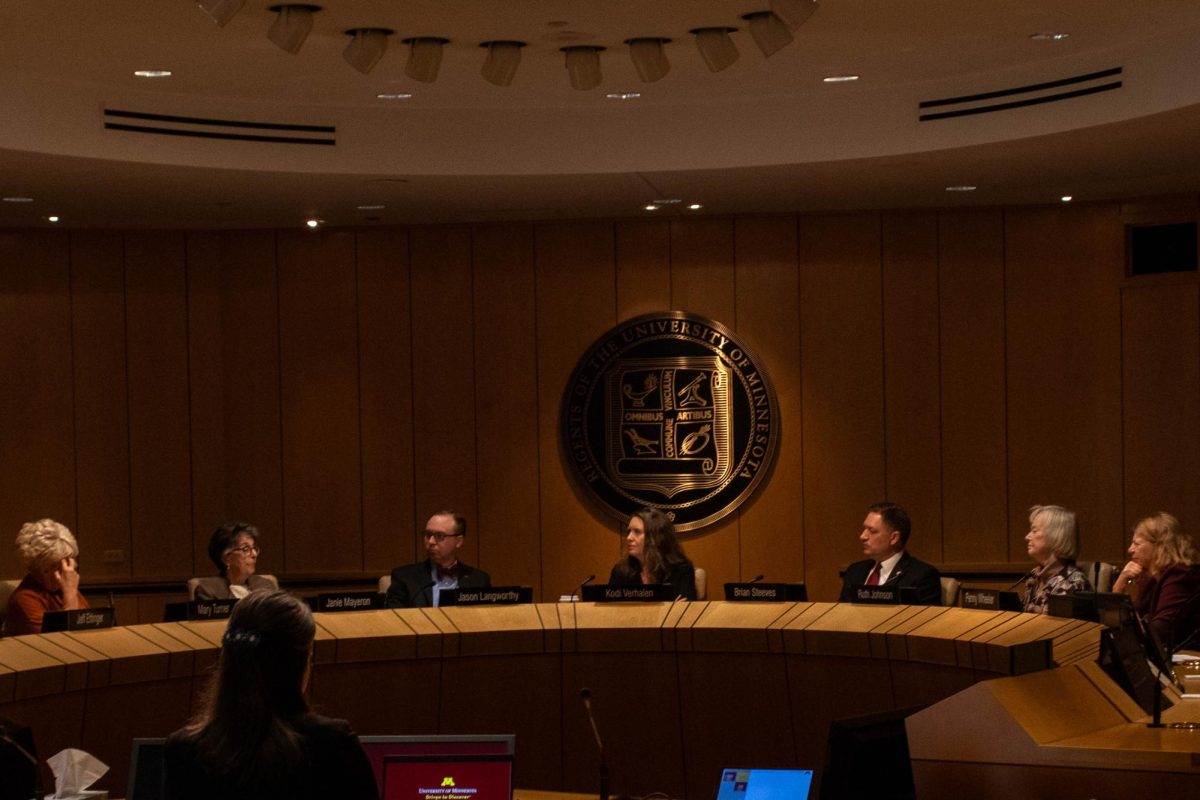The University of Minnesota Board of Regents discussed proposed updates to Title IX policies as Graduate Labor Union (GLU) protesters picketed outside the Board’s July 12 meeting.
The Board will take action on the proposed Title IX changes during its meeting on July 22, according to Board materials. Despite the temporary injunction placed on the University’s proposed updates, in addition to approximately 670 other institutions across the country, approval or disapproval is still expected to be considered.
At the Board meeting on July 10, Director of the Equal Opportunity & Title IX Office Tina Marisam said under the current proposed regulatory update, Union advisors are welcome to be with their union-represented individual throughout the Title IX process and have access to all evidence gathered by the Title IX office.
The proposed regulatory updates focus on compliance with Biden administration updates in time for Aug. 1 when the changes were set to be implemented, as reported by the Minnesota Daily.
Marisam also addressed questions by Regent Robyn Gulley at the July 10 meeting regarding the potential coexistence between proposed union grievance processes and Title IX changes. A union grievance process is a formal complaint under a collective bargaining agreement providing union protections to employees, according to Romano Law.
“Since I know that this is an important issue to the graduate students, is there a compromise position possible?” Gulley said at the meeting.
According to Marisam, the regulation states Title IX processes must treat both employers and employees equally, giving both parties access to grievance procedures.
“It would just have to be configured to comply with that part of the regulations that allows both parties to have equal access to the proceedings,” Marisam said.
In a publicly released GLU statement, members said they were not satisfied.
Nearly 10 months of bargaining has not led to significant progress in creating protections for graduate students from harassment and discrimination through union grievance processes, according to the statement.
GLU’s protest on July 12 was primarily centered around the administration’s refusal to agree to non-discrimination and hostile work environment language to protect employees from bullying, verbal abuse or coercion, said Sam Boland, a GLU representative.
Boland said GLU’s overarching goal is to build a grievance procedure through the Union that can appeal Title IX decisions. However, progress stalled as University administration has not put out a unique contract proposal since October.
“We just haven’t really been able to make any headway,” Boland said.
Currently, GLU is working on its first contract, including a grievance procedure for Title IX complaints that would ideally coexist with Title IX updates, Boland said.
Boland is involved with negotiations around the proposed Title IX regulations and the Union’s proposed grievance process. While he said the changes to Title IX are good overall, GLU takes issue with the University’s inability to implement the Title IX office recommendations.
Boland said the new proposed Title IX regulations explicitly state changes should not prevent union employees from using a grievance procedure.
However, there are potential conflicts between the proposed Title IX and regulatory updates, Boland said. According to the policy, supervisors would need access to the grievance procedure under the proposed updates.
In an emailed statement to the Minnesota Daily, the University’s Office of Human Resources said they look forward to more productive negotiations scheduled through October and are committed to reaching an agreement bargained in good faith.
“The University values the contributions made by our Graduate Assistants to our teaching, research, and outreach missions,” the statement said. “Together, GLU-UE and the University have made significant progress on a first contract in 16 two-day bargaining sessions since September and reached 18 tentative agreements so far.”
While Boland said the University has a fairly robust non-discrimination policy and the Title IX office is a good resource, there is a concern among graduate students that enforcement of Title IX regulations is not being taken seriously.
“If there is an issue of discrimination, the University is going to treat graduate assistants like second-class employees and it’s going to bend over backward to protect faculty,” Boland said. “Even if that comes at the expense of graduate assistants.”
Boland said the case of University biochemistry, molecular biology and biophysics Professor Gianluigi Veglia is a good example of why the grievance procedure could be necessary for appealing decisions.
Veglia violated sexual harassment policies in 2017, making inappropriate comments and advances on graduate student assistants, as reported by the Minnesota Daily.
Boland said Veglia’s case was not properly addressed after claims against him were substantiated and properly investigated by the Title IX Office, as he regained clearance to advise graduate students. Veglia is still permitted to advise graduate students, Boland said.
The Title IX office recommended Veglia be dismissed from the University. This was not followed by the medical school, which instead temporarily removed his ability to advise graduate students.
“People want to be able to have another mechanism to address these kinds of decisions,” Boland said.
According to Boland, the lack of implementation of Title IX recommendations created a lack of trust in using Title IX office resources among graduate students.
The proposed GLU grievance process would be able to appeal University decisions about sexual harassment, discrimination and assault cases.
Editor’s Note: Two grafs were removed for a lack of context.




















